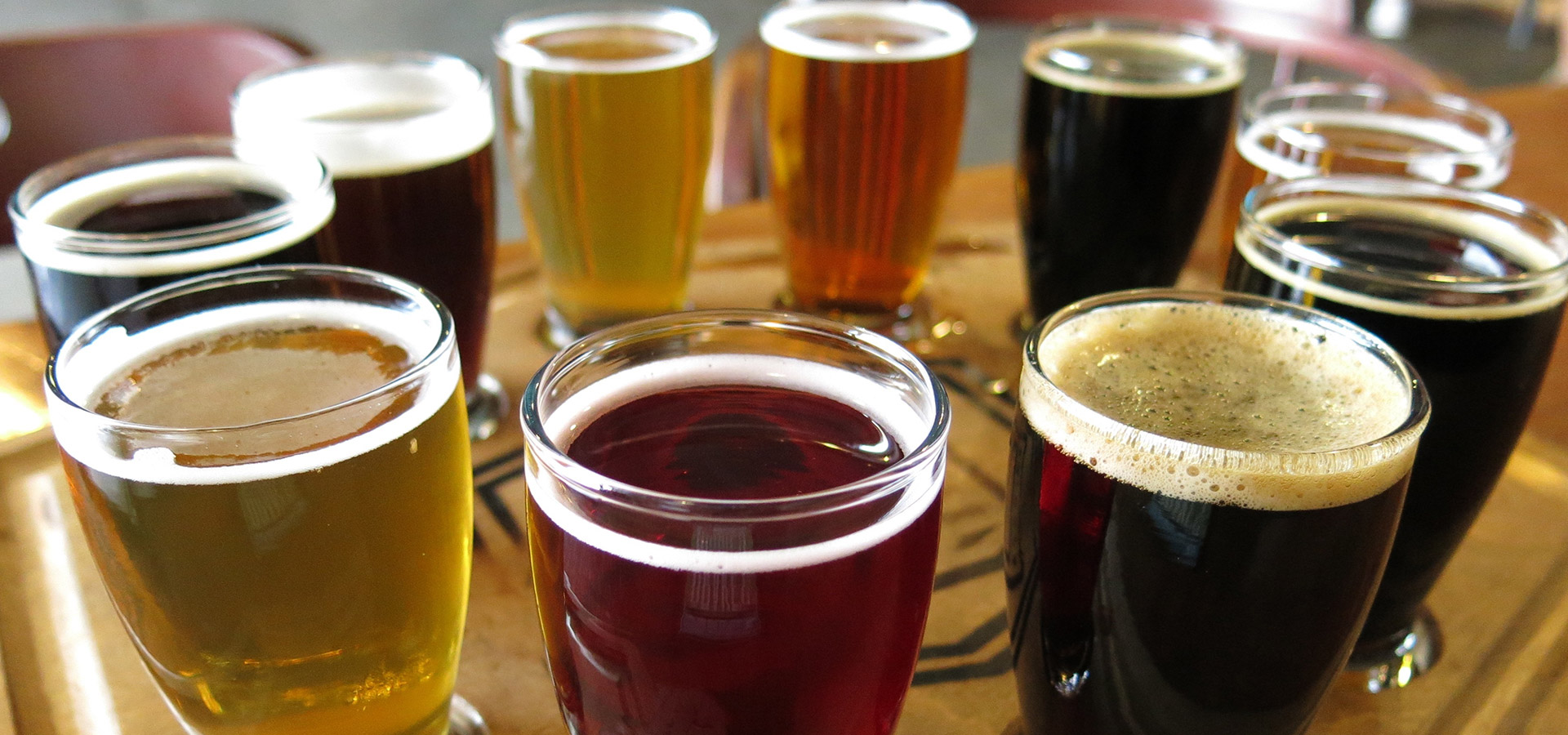Coopersmith’s Brewery in Westeras, Sweden has just become the first Swedish craft brewer to brew and can its own beer. Cask Brewing Systems, makers of the small-scale canning gear that started North America’s canned craft beer phenomenon, supplied the brewery with its canning equipment.
Why cans? “Sweden,” says co-owner Göran Carlsson, “has a state-run alcohol monopoly — System Bolaget — with some 400 stores. Cans have had the lion’s share of beer in those stores for years, in 2014 it was 75% of the total beer volume. So we thought it would be a good idea to become Sweden’s first microbrewery with its own canning line.”
Cans of Coopersmith’s Queen’s Pale Ale (a 5.4% ABV American-style pale ale hopped with Cascade and Centennial hops) are now appearing in stores and establishments in Sweden, and the brewery hopes to add additional canned beers in the near future.
In the US where Cask launched its microcanning revolution in 2002, sales of US canned sixpacks in 2014 were up 97% compared to 14% growth of bottles.
“Canned craft beer is the hottest craft beer package in North America,” says Cask founder Peter Love. “Someday that may be the case in Sweden. We just placed our first canning machines in several European countries and the response to canned craft beer there has been huge.”
“Our canning machines give small brewers an affordable, small-scale way to package their beer,” Love says. “And they allow them to put their beer in a package that’s portable, infinitely recyclable and gives their beer the ultimate protection from light and oxygen. Those benefits are hard for brewers to resist.”
Carlsson appreciates those freshness-keeping benefits, and cites several reasons for using Cask’s Automatic Canning System (ACS) machine to add cans to his brewery’s previously bottles-only lineup.
“First of all,” he says, “the capacity suits our production and sales. We brew 2000 liter batches and get 6000 cans within 3-4 hours. Second is the size of the ACS — it’s slim and easy to place. Third, the price is a good value for the money. The ACS is also easy to handle and operate and it’s very reliable.”
As his pioneering American counterparts did, Carlsson expects he and his partner (Petri
Karhukorpi) and their three staffers must educate consumers about canned craft beer’s benefits.
“I suspect that people look at a can,” he says, “and think ‘cheap stuff with poor taste’. And to be frank, that’s how it’s been until now. Some people say they sense a ‘metallic’
taste. But if you do a blind test they can’t taste the difference between bottle and can.”
“But I think the negative perceptions are starting to change already,” he says. “American canned craft beer is now starting to get trendy here.” Sweden’s younger beer drinkers are also more accepting of canned beer. “That’s what they have grown up with,” he notes.
Cask invented the canned craft beer concept. In 2002 Cask sold its first tabletop machine (which seamed one can at a time) to Oskar Blues Brewery & Pub in Colorado, USA. The tiny brewpub’s cans-only focus made it a fast-growing success, growing from 700 barrels/year to over 149,000 barrels/year in 12 years.
Today over 300 of America’s 3000-plus craft brewers now can all or some of their beers.
Cask’s machines are especially affordable and compact, requiring as little as 16 square feet of space. They also provide an extremely low level of dissolved oxygen (15-20 parts per billion) that extends the shelf life and protects the flavor profile of the canned beer.
Carlsson hopes his cans can break down other barriers in his country. “The next mission is to get acceptance for placing a can on the dinner table. Most people here prefer beer by bottle, so that’s a challenge – and maybe a design question.”
Meanwhile he hopes more of his peers will embrace Cask gear and cans. “That is of course a good thing,” he says. “Together we will be able to prove that cans are the right way to go for craft beer in the future.”
Cask’s affordable manual, semi-automated and automated canning systems are now used by over 400 small breweries, wineries, cider makers and drinks manufacturers in over 30 nations worldwide.
For more details on Cask’s gear and trailblazing history, photos, interviews and other information, contact Marty Jones at 00-1-303-860-7448 (office), 00-1-720-289-9345 (cell) or marty@martyjones.com. Or visit www.cask.com.

